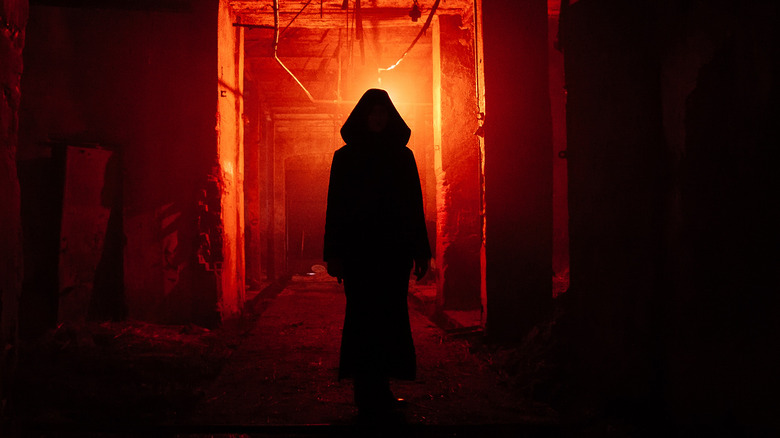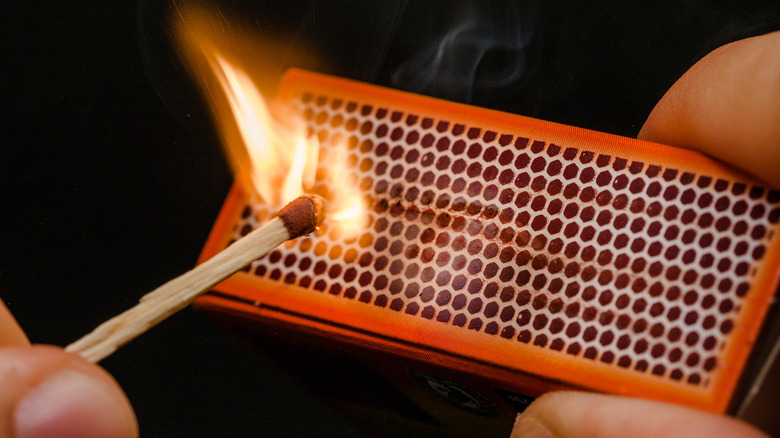Why Do Serial Killers Like Lighting Things On Fire?
The making of a serial killer hinges on a lot of factors, and it usually starts with the exhibition of certain behaviors that predate their murderous streak. But a major link in how a lot of serial killers start off goes back to their upbringing. For years, experts have studied the contributing factors that create a serial killer, and they've concluded that a significant number of these people had less than stellar childhoods, per Psychiatry Advisor. In fact, there is a curious connection that can't be ignored when it comes to childhood abuse and serial killers (via Crime Traveller). Not only that, but serial killers have several tell-tale signs of who they are that stretch from when they're young into adulthood. Some of these characteristics include engaging in animal cruelty (via A&E), wetting the bed (often as children), and starting fires (via Eastern Illinois University).
Why serial killers start fires
Setting fires is a common trend among several well-known serial killers. A few infamous names are David Berkowitz (aka the "Son of Sam"), who started thousands of fires in New York City before his killing spree. And then there's the U.K.'s Bruce Lee, who killed over a dozen people in seven years by committing arson (via the Daily Mail). But why and what is the appeal of fire-setting? Per Crime Museum, arson has a particular allure for a serial killer, and it's also a sign of their mental state, which gains pleasure from causing destruction.
According to the Office of Justice Programs, a lot of serial killers also become arsonists as a result of their previous crimes. To prevent a later investigation, they will typically light a fire to eliminate any evidence of their misdeeds. This can be done to an entire crime scene or just a corpse. Usually, fire hinders investigation by delaying or obstructing proper research. Some serial killers are steps ahead of investigators and set fires to remove links to the crime. While many crime scenes destroyed by fire can still be scrutinized and even turn up useful clues, the act can destroy a significant amount of evidence (per the National Institute of Justice).

